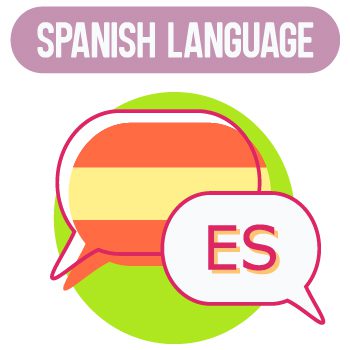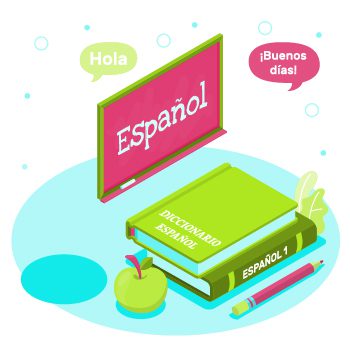
The beauty and diversity of the official languages of Spain
A Brief History of the Languages of Spain
The official languages of Spain have evolved and are a reflection of its diverse cultural heritage. Castilian Spanish, commonly referred to as the Spanish language, holds the status of Spain’s predominant and official language. It originated from Latin and has spread across Latin American countries as well.
In addition to Spanish, Spain recognizes three co-official languages: Catalan, Basque, and Galician. These languages have deep roots and are considered regional languages. Catalan, spoken mainly in Catalonia and the Balearic Islands, has strong ties to the Romance language family. It has unique literature and is widely spoken by the people of Catalonia.
Basque, on the other hand, is quite different from other European languages. It is a language isolate, meaning it has no known linguistic relatives. This ancient language has been spoken in the Basque Country for centuries and holds great cultural significance for the region.
Galician, spoken in Galicia, originates in medieval Galician-Portuguese and is closely related to Portuguese. It has a rich literary tradition and shares many similarities with Spanish and Portuguese.
Each of these languages has its unique history and significance, adding to the rich linguistic tapestry of Spain. Recognizing these languages as co-official reinforces the country’s commitment to linguistic diversity and cultural preservation. Spain’s official languages are not just a means of communication but an essential part of its cultural identity.


Castilian Spanish
Castilian Spanish, also known simply as Spanish, is the official language of Spain and holds a prominent place in the country’s linguistic landscape. With its roots dating back to the 8th century, Castilian Spanish has a rich history and has played a significant role in shaping the nation’s cultural identity.
As the native language of most Spaniards, Castilian Spanish is widely spoken throughout the country. It is the language used in government, education, and media and holds official status in all regions of Spain. Even though it has official status, Castilian Spanish is not the exclusive language spoken in Spain. It shares the stage with several co-official languages in various regions.
Being the most widely spoken language in Spain, Castilian Spanish serves as a unifying force among the diverse linguistic communities in the country. It provides a standard means of communication and fosters a sense of national identity. However, it is essential to recognize and celebrate the linguistic diversity within Spain, including the regional dialects and minority languages that enrich the country’s cultural tapestry.
While Castilian Spanish has spread to Latin American countries and has become one of the most widely spoken languages in the world, its roots are deeply embedded in the history and culture of Spain. It has evolved over centuries, absorbing influences from various languages and dialects, and has become a living language that continues to grow and adapt.
Castilian Spanish holds a special place in the hearts of native speakers, serving as their mother tongue and connecting them to their heritage. Its evolution from its medieval roots to the standardized form we know today is a testament to the resilience and adaptability of this remarkable language. In Spain, Castilian Spanish is more than just a language; it is an integral part of the country’s identity and a reflection of its rich cultural heritage.
Catalan
Catalan, also known as Català, is one of the co-official languages of Spain and is predominantly spoken in Catalonia and the Balearic Islands. With its roots dating back to the 12th century, Catalan has a rich linguistic and cultural heritage that adds to the diversity of Spain.
Catalan is a Romance language with strong ties to the Occitan language family. Its unique literature, art, and music reflect the region’s rich cultural traditions. Catalan has played a significant role in shaping the identity of Catalonia and its people.
As an autonomous community, Catalonia has placed great importance on preserving and promoting the Catalan language. It is widely spoken in everyday life, used in education, and holds official status in the region. Catalan has standardized spelling and grammar, and efforts have been made to revitalize its use in literature, media, and other forms of expression.
Catalan is not just a means of communication; it is an integral part of the Catalan cultural identity. It symbolizes regional pride and reinforces Catalonia’s unique heritage within Spain’s diverse linguistic landscape. Catalonia’s commitment to the Catalan language reflects the region’s strong sense of identity and its desire to preserve its cultural traditions for future generations.
Read more about getting a Catalan-Spanish translation.


Basque
The Basque language, or Euskara, is unlike any other European language. It is a language isolate, meaning it has no known linguistic relatives. This makes Basque genuinely unique and fascinating. Spoken primarily in the Basque Country, a region located in northern Spain and southwestern France, Basque has deep roots and holds great cultural significance for the Basque people.
The origins of Basque can be traced back thousands of years, and it has survived numerous attempts at assimilation throughout history. Today, it stands as a testament to the resilience and determination of the Basque community to preserve their cultural heritage.
Basque is known for its complex grammar and unique vocabulary. It has a distinctive sound and rhythm, which adds to its beauty and allure. Despite its relative isolation, the Basque language continues to thrive and evolve. Efforts have been made to revitalize its use in education, literature, and media, ensuring that it remains an integral part of Basque identity.
Learning Basque opens the door to a vibrant cultural world. It allows you to connect with the Basque people’s traditions, history, and folklore. Whether you’re exploring the beautiful landscapes of the Basque Country or delving into its rich cultural heritage, the Basque language will undoubtedly enhance your experience and deepen your appreciation for this fascinating region.
Galician
Galician, also known as Galego, is one of the co-official languages of Spain and is primarily spoken in the autonomous community of Galicia. With its origins in medieval Galician-Portuguese, Galician shares many similarities with Portuguese. This linguistic connection reflects the close historical and cultural ties between Galicia and Portugal.
Galician has a rich literary tradition has produced many notable writers and poets throughout history. It has its unique spelling and grammar, which have been standardized to ensure its preservation and proper use. Efforts have been made to promote Galician in education, media, and literature, making it a vibrant and living language.
For those interested in learning Galician, it opens the door to a world of Galician literature, music, and cultural heritage. Whether you’re exploring the beautiful landscapes of Galicia, delving into its rich folklore, or simply engaging with its warm and welcoming people, knowing Galician will deepen your connection and appreciation for this unique region of Spain. So why not embark on the journey of learning Galician and immerse yourself in the beauty and richness of Galician culture?
Valencian
Valencian is a co-official language of Spain, primarily spoken in the autonomous community of Valencia. With its origins in the Vulgar Latin said in the region during the Middle Ages, Valencian is closely related to Catalan. Some consider it a dialect of Catalan, while others argue that it is a distinct language in its own right.
Valencian has its unique dialects and vocabulary, influenced by the history and culture of Valencia. It is widely spoken in everyday life, used in education, and has official status in the region. Valencian has its standardized spelling and grammar, and efforts have been made to promote its use in literature, media, and other forms of expression.
Learning Valencian opens up a world of cultural experiences and connections in the vibrant region of Valencia. Whether you’re exploring the stunning beaches of the Costa Blanca, savoring the famous paella Valenciana, or immersing yourself in the festivities of Las Fallas, knowing Valencian will enhance your experience and allow you to connect more deeply with the local community. So why not embark on the journey of learning Valencian and discover the rich cultural heritage of Valencia?
Aranese
Aranese, also known as Aranese Occitan or simply Occitan, is a co-official language of Spain primarily spoken in the Val d’Aran, an autonomous community in Catalonia. This beautiful and unique language has its roots in the Romance language family and shares similarities with Catalan and other Occitan dialects spoken in southern France and northern Italy.
Aranese holds a special place in the hearts of the people of Val d’Aran, serving as a symbol of their cultural heritage and regional identity. Efforts have been made to preserve and promote the use of Aranese in education, literature, and media, ensuring its survival for future generations.
Learning Aranese offers a window into the rich history, traditions, and folklore of Val d’Aran. It allows you to connect more deeply with the local community and gain a deeper understanding of their way of life. Whether exploring the breathtaking Pyrenees mountains, participating in traditional festivals, or simply engaging with the warm and welcoming people of Val d’Aran, knowing Aranese will undoubtedly enrich your experience and make your visit truly unforgettable.
So why not embark on the journey of learning Aranese and discover the unique cultural heritage of the Val d’Aran? Immerse yourself in this beautiful language and unlock a world of vibrant traditions and fascinating history.
Are there any other regional languages in Spain?
Yes, apart from the major regional languages, there are more minor dialects and languages spoken in various parts of Spain, such as Aranese, Aragonese, and Asturian.
How diverse is the linguistic landscape in Spain?
Spain’s linguistic diversity is one of its unique features, with multiple languages and dialects spoken across the country, reflecting its rich cultural tapestry.
How many people speak Spanish in Spain?
Nearly the entire population of Spain, approximately 99%, speak Spanish as their first language.
Are there efforts to preserve and promote these regional languages?
There are active efforts to preserve and promote regional languages, including educational programs, cultural initiatives, and media support.

